As the fifth anniversary of the divisive Star Wars: Episode VIII – The Last Jedi approaches (it hit theaters on December 15, 2017), the spotlight is once again on its director, Rian Johnson. That’s partially because he has another big sequel coming out, this time to his 2019 hit murder mystery, Knives Out, an original franchise he’s developed. And it’s partially because of the ever-growing appreciation for The Last Jedi as both a Star Wars film and a bold cinematic experience in its own right.
Knowledgeable cineastes were saying five years ago that the artistry of The Last Jedi would stand the test of time better than the fan service of J.J. Abrams’ Star Wars sequels, The Force Awakens and The Rise of Skywalker, and it seems as though that has come to pass. As such, Empire magazine has devoted much of its upcoming October issue to Johnson, promising exhaustive coverage of Glass Onion: A Knives Out Mystery, as well as a new “deep dive” with Johnson into The Last Jedi that discusses his feelings about the film now, as well as the status of his future making Star Wars movies.
Surviving The Last Jedi’s ‘retcon’
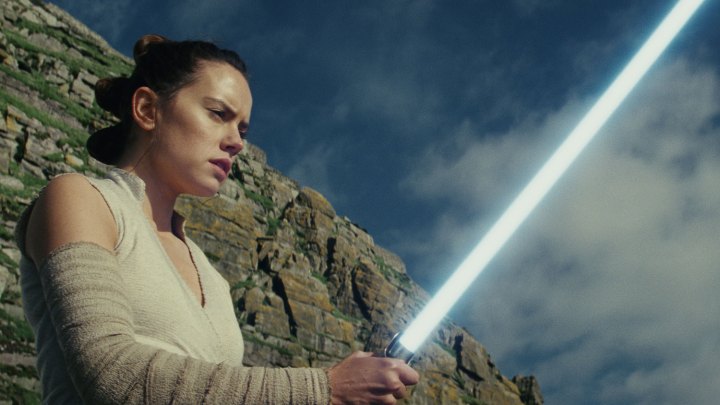
If Johnson felt any special satisfaction earning an Oscar nomination for his Knives Out screenplay around the same time that critics were demolishing Abrams for Star Wars: Episode IX: The Rise of Skywalker and pronouncing Star Wars dead, he was gracious enough not to crow about it publicly. However, while award-giving is inherently subjective and doesn’t prove artistic superiority, it certainly bolstered the opinions of some that Johnson was the true auteur of the Star Wars sequel trilogy. In fact, the critical and popular success of Knives Out felt a bit like cosmic justice for the hash Abrams made of Johnson’s vision by thoroughly retconning it with The Rise of Skywalker (“It’s such a complete rewrite of The Last Jedi, it actually feels vengeful,” wrote one critic).
I don’t think Abrams is a hack. I’m one of the defenders of his Star Trek Into Darkness, which has taken its share of heat over the years. I do think he accepted an impossible task to make a huge movie on quick turnaround that should have had its release date extended by at least a year the moment it lost its original director, Colin Trevorrow. Unfortunately, Disney’s need to create a sister juggernaut to the MCU that churned out at least one, if not several, Star Wars entries a year trumped all considerations for the studio. Abrams then made things worse with his terrible script, the end result of which remains a blight on all of cinema.
Still, those fans who hated The Last Jedi and claimed to prefer Abrams’ supposed fidelity to the Star Wars ethos don’t seem to have much to say about The Rise of Skywalker these days. The Last Jedi, meanwhile, undergoes positive reevaluation, while those who have loved it all along continue to trumpet their steadfast devotion.
Johnson rooted The Last Jedi in myth, not nostalgia

Among those doing the trumpeting is Johnson himself, with the director telling Empire that he remains even “more proud” of The Last Jedi now than upon its release. “When I was up at bat, I really swung at the ball,” he said. In other words, he took his opportunity to make a great film, not just a rehash of stuff he thought was cool as a kid, or that Disney thought they could retrofit for a new generation while steeping older generations in nostalgia, as they had in the The Force Awakens.
Johnson is much less interested in nostalgia, which is fleeting and generationally specific, than myth, which resonates much more deeply across cultures and generations. “I think it’s impossible for any of us to approach Star Wars without thinking about it as a myth that we were raised with, and how that myth, that story baked itself into us and affected us,” Johnson said. “The ultimate intent [with The Last Jedi] was not to strip away – the intent was to get to the basic, fundamental power of myth. And ultimately I hope the film is an affirmation of the power of the myth of Star Wars in our lives.”
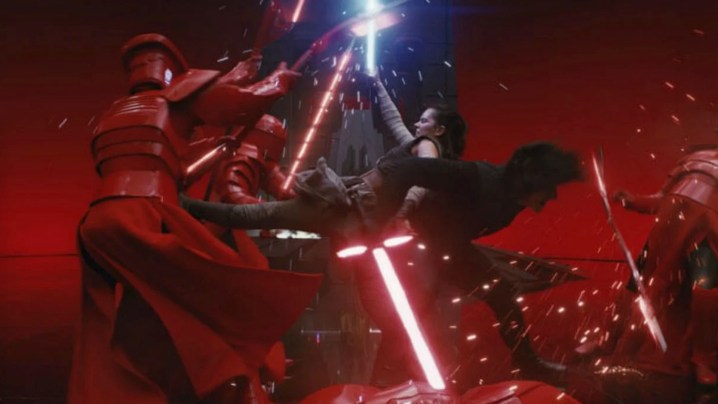
Johnson is referring to the modern myths that George Lucas created with the original trilogy, but also how Star Wars famously channels Joseph Campbell’s idea of the the “monomyth” or the “Hero with a Thousand Faces,” which Campbell identified as the common story of adventure and discovery told by cultures across the world and throughout history. According to Campbell, this monomyth resides in both our collective consciousness (our shared knowledge) and our collective unconscious (a sort of ancestral memory that resides deep within us, which come to think of it, sounds a little like the Force).
Drawing from this rich source material, Johnson attempted to make The Last Jedi tap into and flow through the conduit that propels our fundamental human need for storytelling across the generations, not just within them, by servicing specific subsets of fans.
This is one reason he had little use for Abrams’ “mystery box”-style storytelling, which has exposed itself as all intriguing setup, no satisfying payoff — see Abrams’ Lost on television as well as The Rise of Skywalker — particularly in regards to the unknown origin of Rey’s parents that Abrams set up in The Force Awakens. Johnson famously “solved” the mystery by having Kylo Ren reveal Rey’s parents to be “filthy junk traders” who sold her for drinking money. Then Abrams solved it again by making her related to Sheev Palpatine, one of the many retcons in The Rise of Skywalker that diminished or outright dismissed a better idea from The Last Jedi.
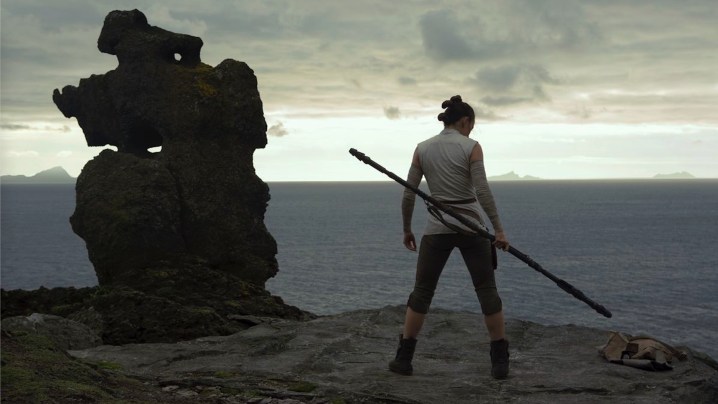
The idea of Rey’s parents being nobodies was meant to convey Johnson’s theme that we all have inherent specialness, not just those of us who come from some kind of high-blood royalty. The Last Jedi emphatically dispenses with the beyond tired “chosen one” trope that persists in practically every sci-fi and fantasy franchise.
Discovering that you are special is a beautiful fantasy, but recognizing that you can make yourself into something special is not only a more accessible dream, it’s a more powerful one. This is because it depends not on magic and fate and things outside of our control, but on our own discipline and revolve to develop our character over time. The Last Jedi visualizes this beautifully in its final scene as the little “nobody” orphan boy sets his broom aside for a moment to wonder at the stars and, presumably, his future among them.
Building the myth of Luke Skywalker

Of course, the primary objection from the fans let down by The Last Jedi was that Luke Skywalker was not “heroic” enough — that Johnson didn’t lean into Luke’s own well-established “chosen one” status. I’ve written about Luke’s chosen one status in-depth, so I’ll just say here that I believe the reason for the, ahem, resistance to Johnson’s more pacifist version of Luke Skywalker is a fundamental misunderstanding among many people about what constitutes true heroism. This is not surprising given that so many of our contemporary stories equate heroism with violent action.
But Johnson and the wiser Luke of The Last Jedi understand that action and violence should be used judiciously as a tool of the hero, not as the default method, and certainly not as something the hero relishes. It seems unnecessary to have to point this out, but zealous violence is the modus operandi of the Dark Side of the Force, which George Lucas himself dramatized as unambiguously bad.
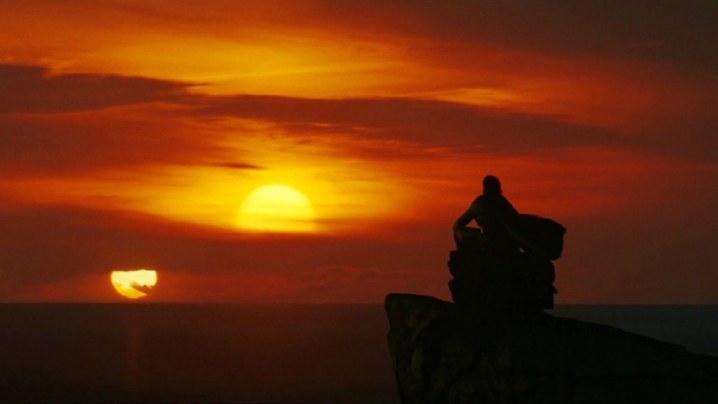
Johnson weighed in on this recently as well. “The final images of the movie, to me, are not deconstructing the myth of Luke Skywalker, they’re building it, and they’re him embracing it,” he said. “They’re him … embracing what actually matters about his myth and what’s going to inspire the next generation.”
Unfortunately, these fans who reject Luke’s characterization in The Last Jedi have been given much ammo over the years from Mark Hamill’s problems with the way Johnson handled Luke in the movie. I have uber-respect for Hamill, both as a better actor than he gets credit for, and for the generosity, wit, and compassion he regularly shows as a public figure, especially in the age of social media. I think he’s wrong when he says that Luke is misrepresented in the film, but then much of his criticism has centered on the way the sequel trilogy was pitched to him versus how he actually appeared in it, as well as not being able to reunite on screen with Harrison Ford and Carrie Fisher, something he felt fans longed for.
A Rian Johnson trilogy could make Star Wars new again
Not to put too fine a point on it, but Luke Skywalker is dead now and Johnson won’t have to worry about him anymore. Given this, what might a new Johnson Star Wars trilogy look like? The prospect still lives, as it has not been canceled five years after its announcement, even as many other Star Wars projects have been shuttered. But there is also no tentative date set for its production, as both Johnson and Lucasfilm President Kathleen Kennedy confirmed recently. “I’ve stayed close to Kathleen [Kennedy] and we get together often and talk about it,” he told Empire. “It’s just at this point a matter of schedule and when it can happen. It would break my heart if I were finished, if I couldn’t get back in that sandbox at some point.”
For her part, Kennedy said at Star Wars Celebration this year, “Rian had such a gigantic success with Knives Out that he’s very committed to trying to get that done. So it’ll be a while,” she said. “As you know, we have to work three, five years in advance on what we’re doing. So that’s where that sits.”
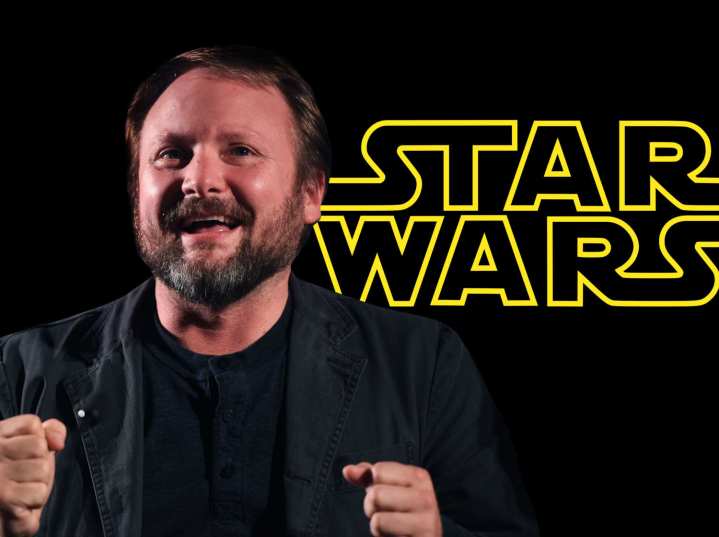
One thing is certain: Star Wars desperately needs to be about something new. It can hardly breathe anymore given the way it’s trying to fill in every storytelling nook and cranny with endlessly proliferating television shows such as the upcoming Andor and Ahsoka. But the trash compactor walls are closing in tight now. The storytelling needs fresh places to go.
One of the many reasons why Knives Out is such a satisfying film is because Johnson uses it as an occasion for social criticism — particularly of economic exploitation and white privilege — while never losing sight of the fact that a mystery-comedy should always be an entertainment first. Of course, a large contingent of The Last Jedi haters — the self-same contingent that lapped up Luke Skywalker’s mindless robot slashing in The Mandalorian — have made it clear that they don’t want their stories to contain social criticism. If they ever understood that Lucas, a child of the 1960s, intended the original Star Wars movies to condemn American Imperialism in general, and the U.S. involvement in Vietnam in particular, their circuits would probably overload.
It could be exciting to see Star Wars get back to its political themes, which Lucas further fleshed out in the prequel trilogy. I’m not advocating for more squabbling in the Galactic Senate or sonorous proclamations about democracy dying. Star Wars works best in bold strokes, with its metaphors and allegories tucked within the breathtaking exploits and dazzling visuals. As with Knives Out, Star Wars should be first and foremost fresh and entertaining, something which Johnson has proven he can do and should be given the opportunity to do again.
Editors' Recommendations
- Ahsoka vs. Anakin Skywalker: who would win in a fight?
- The 7 best Star Wars vehicles ever, ranked
- Why Star Wars Jedi: Survivor’s Cal Kestis needs his own Disney+ show
- Every time we’ve seen Order 66 in Star Wars movies, video games, and TV shows
- The Mandalorian season 3 finale gives the Star Wars series a much-needed reset




